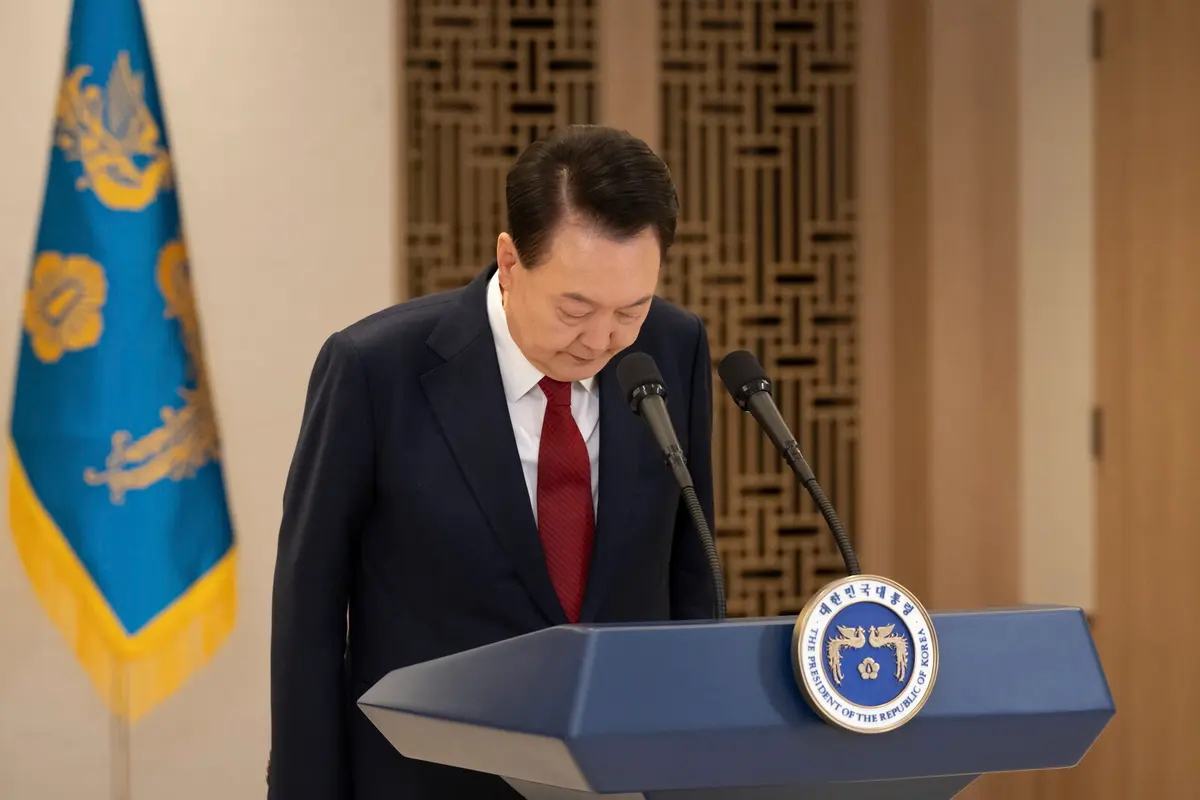A narrow majority votes to bring impeachment charges against the president, with allegations that he has effectively carried out an attempted coup or rebellion.
Today's decision is a great victory for the people, says the largest opposition party Democratic Party's group leader Park Chan-Dae.
When Yoon Suk-Yeol is formally notified of the impeachment decision, he will be immediately removed from office. Prime Minister Han Duck-Soo will be acting president until the Constitutional Court makes a final decision on whether Yoon should be removed.
The president admits in a televised speech that he will leave his post, but he does not apologize for his actions and says that there has been too much "exaggeration and confrontation" in politics.
Even if I now need to step aside for a while, the journey towards the future must never stop, says Yoon.
A few decided
Yoon Suk-Yeol narrowly escaped a vote last weekend, when his party colleagues in the People's Power Party (PPP) did not show up and the members were therefore too few to make a decision.
This time, it was clear that PPP's members would attend – and that it was about very small margins.
Only seven of the party's 108 members had explicitly stated that they would vote for the impeachment motion in the final vote. For a guilty verdict with a two-thirds majority, only one more vote was needed.
When the speaker announced the result, it was clear that 204 of the 300 members of the National Assembly had voted to remove the president. 85 voted against.
On Saturday, large crowds gathered for demonstrations in Seoul. According to police estimates, at least 200,000 people gathered at the National Assembly to protest against President Yoon.
Elsewhere, smaller demonstrations took place in support of him.
Court decides
The National Assembly brings an impeachment charge, which is ultimately decided by the judges of the Constitutional Court. They have 180 days to evaluate whether the National Assembly has grounds to remove the president, or whether their decision should be overturned so that Yoon can return.
The process is further complicated by the fact that there are only six judges on the court's nine seats, which means they must make a unanimous decision.
The court has made decisions like this twice before. In 2016, it gave the green light to remove President Park Geun-Hye – but in 2004, it went against the National Assembly and allowed President Roh Moo-Hyun to return to his post.
Beside and independent of the impeachment process, the president is subject to a prosecutor-led criminal investigation. He has also been banned from leaving the country.
Corrected: In an earlier version of this text, there were misleading formulations about the impeachment process.
President Yoon Suk-Yeol's decision to declare a short-lived state of emergency two weeks ago has led to a deepening political crisis in the country, which has been exacerbated by Yoon's refusal to leave his post.
The state of emergency was declared on the evening of December 3 and was withdrawn after six hours, after the National Assembly defied it and gathered to vote it down.
The decision shocked the country and the world and reminded of the country's dark history with states of emergency and military rule half a century ago.
Large popular protests and strikes followed. The opposition tried to initiate an impeachment process against Yoon, who did not heed the calls for resignation. A first impeachment attempt on December 7 failed when the president's party colleagues did not show up.
The Defense Minister, who supported the president in the decision, has been forced to resign.






